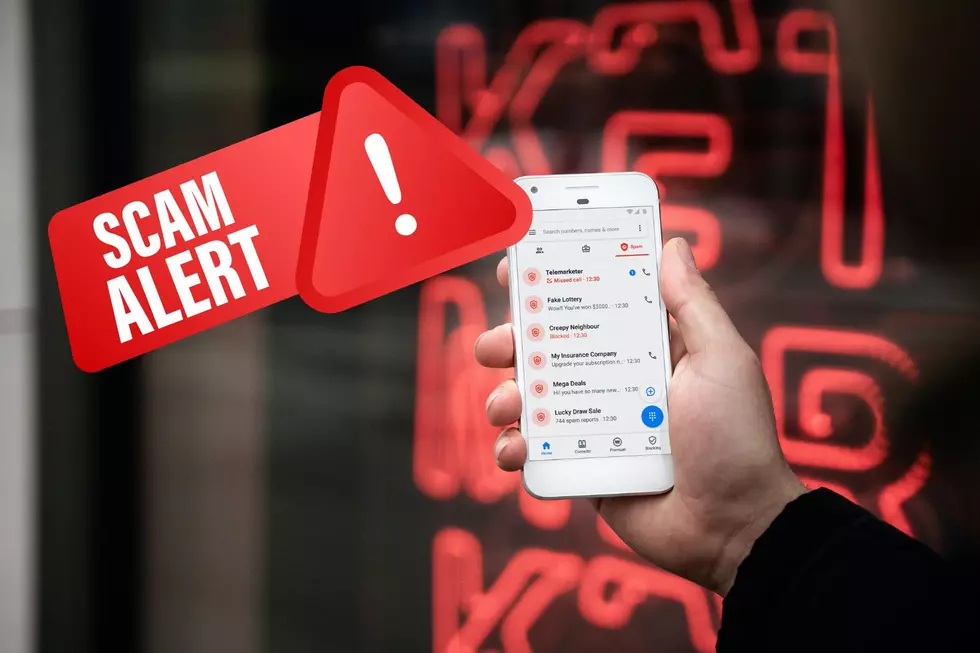
New Scam Using Text Messages To Steal From New York Bank Accounts
There is a new scam that is using text messages and phone calls to drain New Yorkers' bank accounts. This scam is particularly cruel, as thieves can use it to steal a victim's life savings.
Here's How The Text Message Verification Code Scam Works
Scammers will attempt to hack into a victim's bank account, prompting a two-step verification code to be sent via text message to the account holder's phone. The scammers will then use technology to disguise their phone number or caller ID as the bank. They will say the victim's card has been compromised and they will issue a new debit card. They will then ask the victim to read them the verification code. They may repeat this over several days, while telling the victim there is a delay in their card shipment. While they continue to delay the victim, they are transferring money each day.
The really horrible part of this scam is that it is likely the bank will deny any claim the victim files for reimbursement, saying they are responsible because they provided the verification codes to the scammer via phone. Chase Bank offers the following tips,
Do not share personal account information such as ATM PINs or passcodes. Keep in mind that the bank typically does not initiate phone calls, but if you want to ensure you are speaking with the bank, call the number on the back of your card. Lastly, avoid clicking on suspicious links in texts or emails.
There have been warnings issued for many scams lately.
AT&T Warns Of New ‘One Ring’ Scam That Affects New York State Residents
According to The Sun, AT&T sent out an official memo about the scam. Victims get a call, it rings once, then the phone stops ringing. That's the draw. Scammers are hoping that unsuspecting victims will call the number back. According to AT&T's memo,
As soon as you do, you’ll hear a recorded message that is intended to keep you on the phone, or worse, to get you to call back a second time. For example, the message may say: 'Hello … hello? … I’m having trouble hearing you. Hello? … Will you please call back?' Every time you call, you will be charged high international rates or other connection fees. The bad guy gets all or part of those fees.
There are other tricks the scammers will use to keep you on the phone, like saying that if you listen to a full song, you'll be eligible for a prize, reward, or gift. Whatever tricks they employ, the more money they charge you.
This scam, known as wangiri, which means "one-ring-and-cut," originated in Japan.
How To Avoid The One-Ring Scam
- Do not answer unknown calls or suspicious numbers
- If you see a "+" in front of the number, be weary
- If a call seems suspicious, hang up immediately
You Should Also Check Out '9 Scam Phone Area Codes People In New York State Should Never Answer'
A New Scam Targets New York Homeowners With Fake Mortgage Notices
The Better Business Bureau is warning homeowners in New York State about a scam using phony mortgage notices. The BBB's scam tracker reports that deceptive solicitation letters are going out to homeowners that look like they are from the mortgage company.
Here's How Scammers Are Targeting NY Homeowners
Scammers are mailing out letters that look like they are from your mortgage company. These phony letters appear to be from the company’s “Home Warranty Department,” claiming that the home warranty must be renewed. The BBB says that if you receive a notice like this, look at it closely, one BBB Scam Tracker report noticed a tell-tale sign on the letter,
At the very bottom of the letter in small print is the comment, ‘Not all consumers have previous coverage. We are not affiliated with your current mortgage.’
Another homeowner who used the BBB's scam tracker reporting tool said that it is designed to look like a check, but once you open the letter there is a ‘Renewal Fee Voucher’ for $199 inside that tries to dupe you into signing up for a warranty. The BBB warns,
If you don’t read the fine print (or it doesn’t appear in the letter you receive), you’ll likely be concerned your home warranty has lapsed, and your mortgage is at risk. You won't be dealing with your mortgage lender if you call the number and “renew” your warranty. Instead, you will have given money and personal information to a company that employs deceptive advertising tactics.
The scheme may actually provide a real product, but the companies are using deceptive techniques.
How To Avoid Falling Victim To A Mortgage Warranty Scam
The BBB offers these three tips,
1. Contact your lender directly if you suspect any notice might be a scam.
2. Be aware that scammers often use high-pressure tactics, offers, and threats.
3. If you're shopping for a home warranty, do thorough research before signing a contract.
More From 93.7 WBLK









